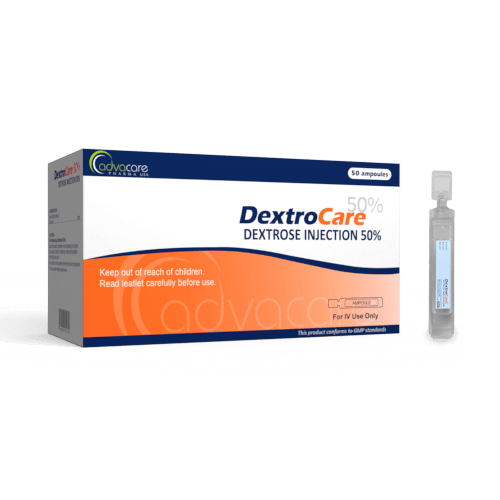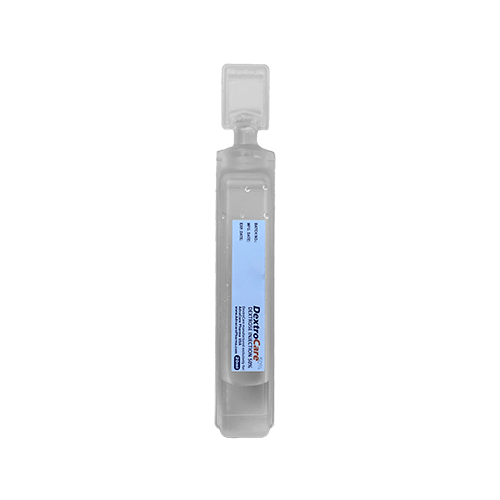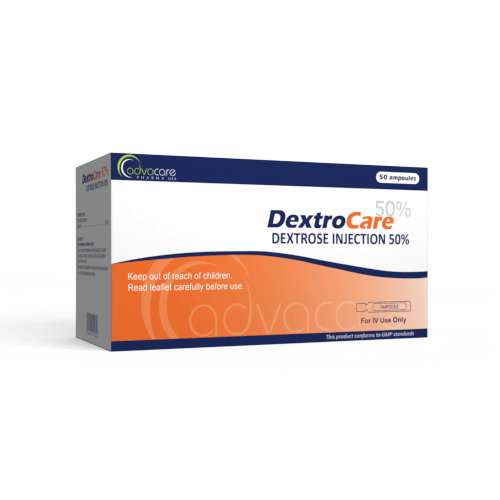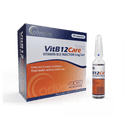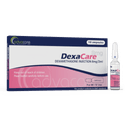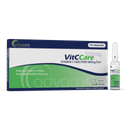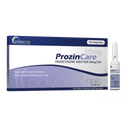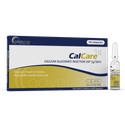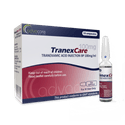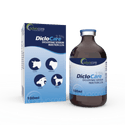- Home›
- Pharmaceuticals›
- Injections›
- Small Volume Injections›
- Glucose (Dextrose) Injection
Glucose (Dextrose) Injection
Dosage
Packaging
What is Glucose (Dextrose)?
Active Ingredients: Glucose (Dextrose)
Glucose (Dextrose) Injection is used to treat severe hypoglycemia caused by insulin excess. This medication is given to diabetic patients who have become unconscious because they have not eaten enough after receiving their insulin injection. It is occasionally used for patients who are severely ill with alcohol intoxication.
Glucose is a simple sugar (monosaccharide) that is produced in humans via hepatic gluconeogenesis and the breakdown of polymeric glucose forms (glycogenolysis). Glucose circulates within the human bloodstream as blood glucose. It serves as a crucial energy source for numerous organisms, facilitating aerobic or anaerobic respiration and fermentation. In plants, it is primarily stored as starch, while animals store it as glycogen, both utilized in various cellular metabolic processes. The most prevalent isomer of glucose in nature is its aldohexose stereoisomer, known as dextrose or D-glucose.
Glucose is an energy source in humans that is involved in various cellular activities. It is a signaling molecule for diverse glucose-sensing molecules and proteins. Glucose is included in the oxidation process and converts into carbon dioxide and water, and yields energy molecules for the metabolic processes of oxidative phosphorylation and citric cycle, which are needed for normal metabolism. Glucose molecules can be converted into fat and used as an energy source. It is also stored in the liver and muscles as glycogen. When needed, these molecules are mobilized depending on the metabolic demands.
When given intravenously, this solution effectively restores blood glucose levels in cases of hypoglycemia and serves as a carbohydrate calorie source. The inclusion of dextrose in its carbohydrate form can help minimize liver glycogen depletion and exhibit a protein-sparing effect. The oxidation of dextrose injection results in the production of carbon dioxide and water.
The absorption of Dextrose is rapid. Glucose undergoes aerobic oxidation. Glycolysis is the initial stage of glucose metabolism, and the final products of it are transported to the mitochondria where they are oxidized into oxygen and carbon dioxide.
Glucose (Dextrose) is a sugar that is required for normal bodily functions. It is listed on the World Health Organization's List of Essential Medicines.
This drug is also available in the form of Dextrose Saline Infusion.
AdvaCare Pharma is a GMP-certified manufacturer and exporter of Glucose (Dextrose) Injections. We offer a wide range of high-quality and cost-effective medical products that are available for distribution. This medication has been produced in our facilities in China, India, and the USA.
Why are we a leading Glucose (Dextrose) manufacturer?
AdvaCare Pharma, a US-owned pharmaceutical company, is a manufacturer of Glucose (Dextrose) Injection with GMP-compliant manufacturing facilities located worldwide. We conduct frequent GMP, third-party and internal facility inspections to ensure that our manufactured injectable treatments exceed the stringent requirements of importing countries and our distributors.
As a renown Glucose (Dextrose) manufacturer and global supplier of 120+ pharmaceutical injection products, our global reach extends to over 65 markets ensuring that pharmaceutical distributors, hospitals, pharmacies, NGOs and government institutions receive the quality-assured treatments they need.
Uses
What is Glucose (Dextrose) used for?
It is used to treat severe hypoglycemia in diabetic patients. It is also used to treat severe alcohol intoxication.
How are Glucose (Dextrose) Injections used?
This medication is manufactured as a solution to be injected into the vein.
If possible, blood sugar levels should be checked before administering the injection. After injection, the patient should regain consciousness within 15 minutes. If not, a second dose may be given.
It is best to roll a patient onto their left side after administration, as this drug may cause vomiting.
What dose should be given?
The exact dose will vary with the condition of the patient. Refer to a doctor or pharmacist for guidelines on dosage.
For peripheral vein administration, the solution must be administered slowly. The rate of infusion of Dextrose without producing glycosuria is 0.5g/kg/hour. Around 95% of the drug is retained when administered at a rate of 0.8g/kg/hour.
In cases of insulin-induced hypoglycemia, intravenous administration of 10-25g is adequate. Severe cases of hypoglycemia need repeated doses and supportive treatment. Blood glucose determination should be done before injecting the Dextrose. This drug should be administered promptly without awaiting pretreatment test results.
The dosage for hypoglycemia in adult patients is the following: • IV: 10-25g (i.e., 20-50mL of 50% solution or 40-100mL of 25%)
The dosage for hypoglycemia in pediatric patients is the following:
- Children younger than 6 months of age: 0.25-0.5g/kg/dose (1-2 mL/kg/dose of 25% solution) IV; not to exceed 25g/dose
- Children older than 6 months of age: 0.5-1g/kg up to 25 g (2-4 mL/kg/dose of 25% solution) IV; not to exceed 25g/dose
- IV: 10-25g (i.e., 20-25mL of 50% solution or 40-100mL of 25%)
Can Glucose (Dextrose) Injection be used in pregnant women?
This drug belongs to the pregnancy category C, and there are no known animal reproduction studies conducted with Dextrose. Dextrose does not cause fetal harm when administered to a pregnant woman nor can affect reproduction capacity. This drug should be given to pregnant women only when the benefit outweighs the risk.
Can Glucose (Dextrose) be used in nursing mothers?
There is no adequate data if Dextrose is excreted in human milk. Doctors should prescribe this drug with caution when 50% Dextrose is injected into nursing mothers. Prescribing this drug to nursing mothers should be done with caution and only when needed.
How should Glucose (Dextrose) Injection be stored?
The exposure of this drug to heat should be minimized. This drug should also be protected from freezing. Advisable storing is at a room temperature of 25°C.
Other warnings
Dextrose has minor interactions with the following:
- magnesium sulfate
- magnesium chloride
- magnesium hydroxide
- magnesium oxide
- magnesium citrate
This injection without electrolytes should not be administered simultaneously with blood through the same infusion. This is because there is a possibility of pseudo-agglutination of red cells.
Phlebitis and thrombosis might occur at the site of administration because this is a hypertonic injection. The injection should be administered slowly because hyperglycemia and hyperosmolar syndrome might result from too rapid administration. Patients with chronic uremia and carbohydrate intolerance might experience hyperosmolar syndrome with the manifestation of mental confusion and loss of consciousness.
The doctor should be aware of the possible side effects due to the intravenous administration that lead to fluid or solute overloading. This might lead to serum electrolyte concentration dilution, overhydration, pulmonary edema, or congested states.
Prolonged treatment with Dextrose solutions might lead to electrolyte deficits, like serum potassium or phosphate deficits. The blood electrolyte status should be monitored carefully. Any electrolyte imbalances should be corrected. Doctors should decide if the patients need some essential vitamins or minerals. Monitoring the blood and urine glucose is necessary to minimize hyperglycemia and consequent glycosuria.
The administration of a concentrated dextrose solution is contraindicated in cases of intracranial or intraspinal hemorrhage and during delirium tremens, especially if the patient is already dehydrated.
If patients are treated with concentrated Dextrose (50%), it is advisable to add 5% or 10% Dextrose injections for some period to avoid rebound hypoglycemia.
Side Effects
As with all pharmaceuticals, some unwanted effects can occur from the use of Glucose (Dextrose) Injection.
Common side effects include, but may not be limited to:
- increased urination
- pain
- redness or swelling at the injection site
Serious side effects may include:
- severe allergic reactions
- confusion
- muscle twitching
- seizures
- swelling of the hands or feet
- weakness
Rapid administration of concentrated Dextrose might lead to a hyperosmolar syndrome that causes mental confusion or loss of consciousness.
Negative side effects due to the technique of administration include febrile response, venous thrombosis, infection at the site of administration, phlebitis, extravasation, or hypervolemia.
If patients develop some serious side effects, they should be monitored, and appropriate therapeutic countermeasures should be taken.
For a comprehensive understanding of all potential side effects, consult a medical professional.
If any symptoms persist or worsen, or you notice any other symptoms, please call your doctor.
Precautions
Do NOT use a Glucose (Dextrose) Injection if:
- You have ischaemic heart disease.
- You have hyperglycemia.
- You have pheochromocytoma.
- You are severely dehydrated.
- You are allergic to corn or corn products.
Dextrose should not be used in patients with intracranial or intraspinal hemorrhage. Also, it should not be used in the presence of delirium tremens and dehydration.
Patients should inform their doctors about any prescribed or unprescribed medications they are taking.
This drug should be used if the solution is clear and the seal is intact.
Patients with known subclinical or overt diabetes mellitus should use this product with caution.
Concentrated Dextrose should not be administered subcutaneously or intramuscularly.
Before treatment, consult your doctor regarding any medications you are taking to address potential drug interactions.
This medication may not be suitable for people with certain conditions, so it is important to consult with a doctor if you have any health conditions.
References
Subcutaneous dextrose for rehydration of elderly patients – an evidence-based review
The main aim of this study is to assess the safety and effectiveness of rehydration of elderly patients with subcutaneous 5% dextrose solutions compared with intravenous 5% dextrose solutions. This study was performed by taking into consideration different studies from databases.
There were only 15 potentially relevant articles, and after taking into consideration the criteria, 4 studies were included (one systematic review, two randomized controlled trials, and one cohort study).
The conclusion is that appropriate volumes of subcutaneous dextrose infusions can be used effectively for the treatment of dehydration.

You might be interested in...
Why AdvaCare Pharma?
As an industry leader, we are aware of our responsibility to provide affordable and sustainable solutions to improve healthcare worldwide.
